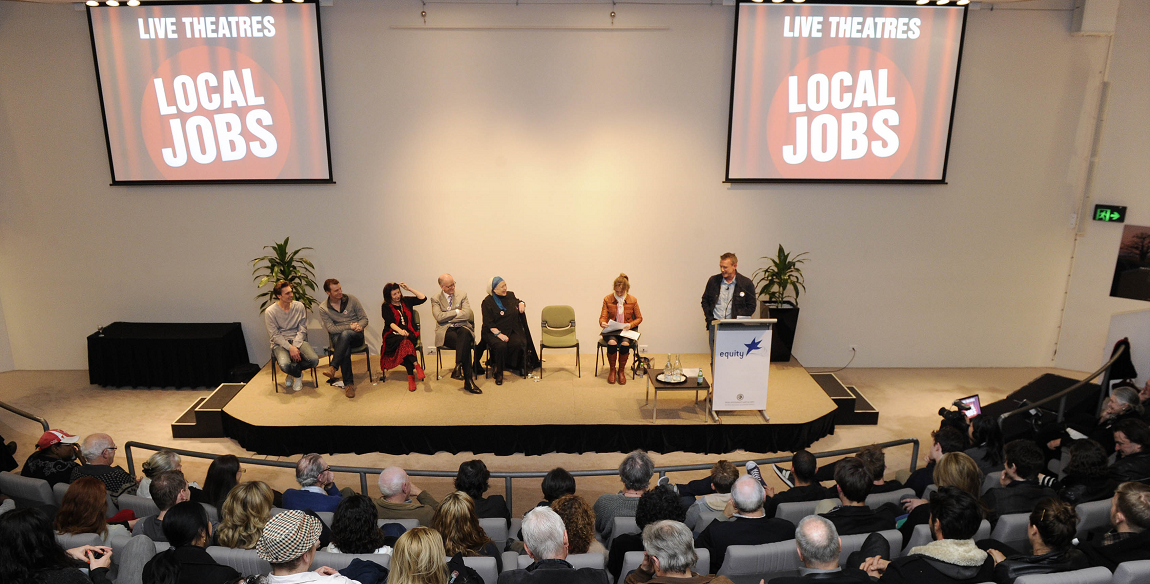Live Theatre, Local Jobs

In April 2012 Live Performance Australia [LPA] told Equity it was walking away from the overseas artists agreement. There was no prior consultation with Equity or performers. In an industry founded on collegial relations this was disappointing and unnecessarily provocative.
The agreement has in large part shaped the industry we have – an industry that has created successful local productions, developed leading Australian performers who have succeeded on the West End and Broadway and built companies who are increasingly invited to tour abroad.
Under the agreement producers had to establish that an imported performer had box office credentials or that the role genuinely couldn’t be cast here. A whole cast could only be imported if it was a recognised unit company. Without the agreement there is no obligation to comply with these criteria or to conduct a casting exercise. Producers just need to satisfy the Net Employment Benefit test under the Migration Regulations. They can do this through hiring support staff (typically ticket-sellers, cleaners and caterers).
No-one is saying jobs will be lost overnight. Many upcoming shows have already been cast and seasons are in place. But over time performers will inevitably lose out on work and career opportunities.
Responsible producers continue to support the use of Australian performers. However LPA’s abandonment of the agreement could be taken by others as a signal that it’s OK to overlook Australians for principal roles or to bring in whole casts, as happened prior to the agreement. ”
Equity and theatre companies finalise deal on overseas artists
In December 2013 the campaign took a positive turn when Equity has reached agreement with each of the major subsidised theatre companies on new guidelines covering the use of overseas artists.
The new guidelines were the result of extensive consultation between the union and the companies over the past 18 months.
They outline the circumstances under which overseas artists may be employed by the companies. These include where the artist is of international renown or has box office appeal or where, following a due search, a role cannot be cast locally. The agreement also allows for unit companies such as The Royal Shakespeare Company or Knee High to be imported along with reciprocal exchanges and international collaborations involving Australian and international performances.
Equity president Simon Burke said: “We are thrilled to have finalised these new sector-specific overseas artists guidelines, which every major subsidised theatre company in this country has worked with us to develop and agreed to follow. The time and effort that Equity and the AMPAG companies have put into finalising these guidelines demonstrates our shared commitment to a strong, sustainable live performance industry that provides every possible opportunity for Australian performers .
MEAA’s Equity section continues to campaign hard to ensure there is no erosion of work and career opportunities for performers.